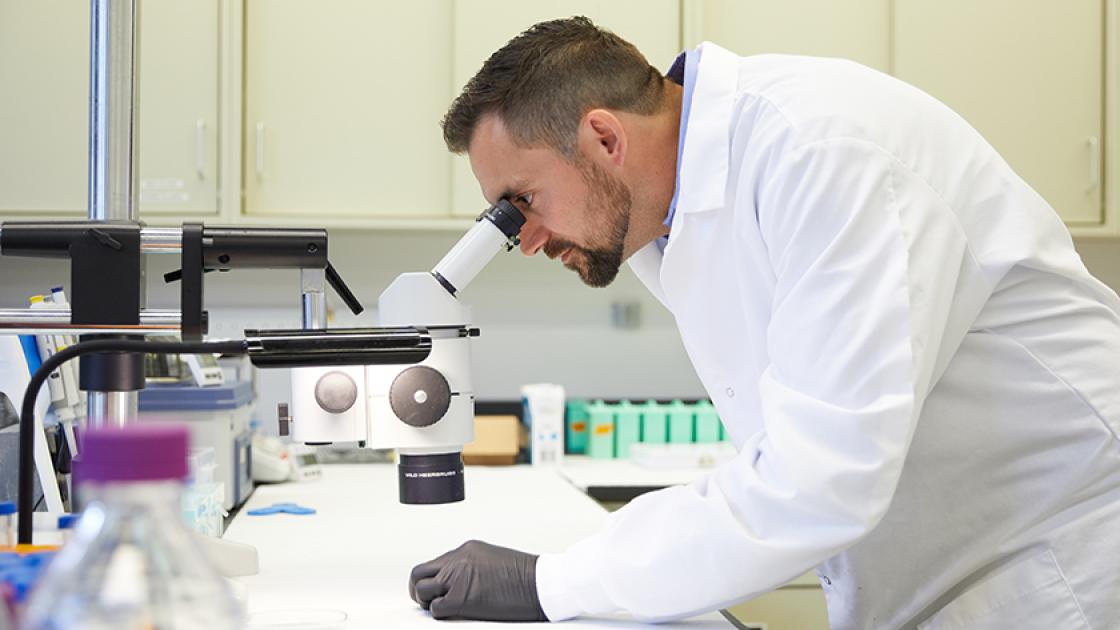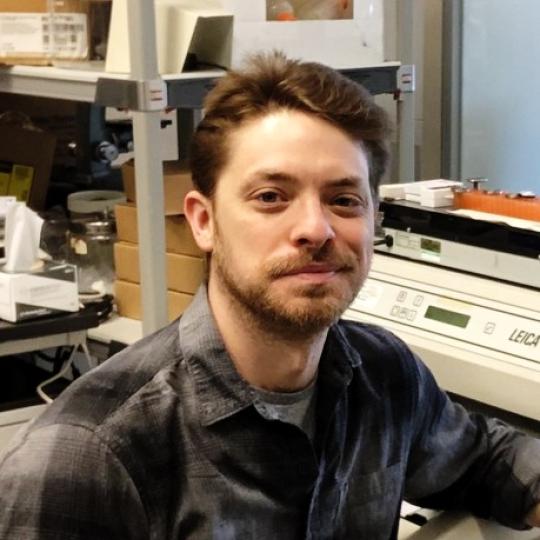
Richardson Lab
The broad focus of the lab is to understand the synaptic properties and network dynamics in the cerebellum and thalamocortical system that contribute sensoimotor processing and behavioral output, along with how changes in these systems may underly neurodevelopmental disorders.
Overview
The nervous system is complex and we still understand relatively little about the cause of or how to treat many neuropsychiatric disorders, like Autism, addiction, or schizophrenia. The two goals of our lab are to
1) develop a more complete understanding of certain neurocircuits and
2) use that information to inform we view and assess environmental and genetic contributions to neuropsychiatric disease.
We use inbred and transgenic rodent models to understand how neuronal function at a cellular level may specifically determine discrete aspects of innate and learned behaviors related to sensory attention, arousal, and cognitive functions.

Ben Richardson, PhD Primary Investigator
Research Focus
Anatomy & Function of Sensorimotor Circuits
Our lab is interested in understanding the detailed workings of sensorimotor processing circuits, especially those that involve the cerebellum functioning outside of the motor system. A growing body of evidence suggests that the cerebellum may be involved in non-motor functions through its interactions with brain areas involved in reward, attention and emotion. We are currently using a combination of electrophysiology, histochemistry, viral tract tracing, transgenic mice, and optogenetics to develop detailed knowledge of some of these poorly neural pathways.
Novel Roles for Cerebellum in Neurodevelopmental Disorders
The expanding view of brain areas and functions that involve the cerebellum establish a rich network of interactions by which cerebellar dysfunction may impact a broad array of neural functions, processes and behaviors. We are working to identify the mechanisms by which changes or effects in the cerebellum may contribute to Autism Spectrum Disorder (ASD), alcoholism, and deficits in auditory processing. This work involves the use of whole animal and brain slice electrophysiology, histochemistry, optogenetics and assessment of behaviors in a number of wildtype and transgenic mouse lines.
Publications
SIU Lab Collaborators
Other Lab Collaborators
- David Rossi – Washington State University
- Sam Wang – Princeton University
Grant Funding
Title: Cerebellar granule cell dysfunction in Shank3 mutant mice
NIH-NIMH, R01 MH129749
Title: Network modulators of auditory thalamocortical feedback inhibition
NIH – NIDCD, R21 DC018365











